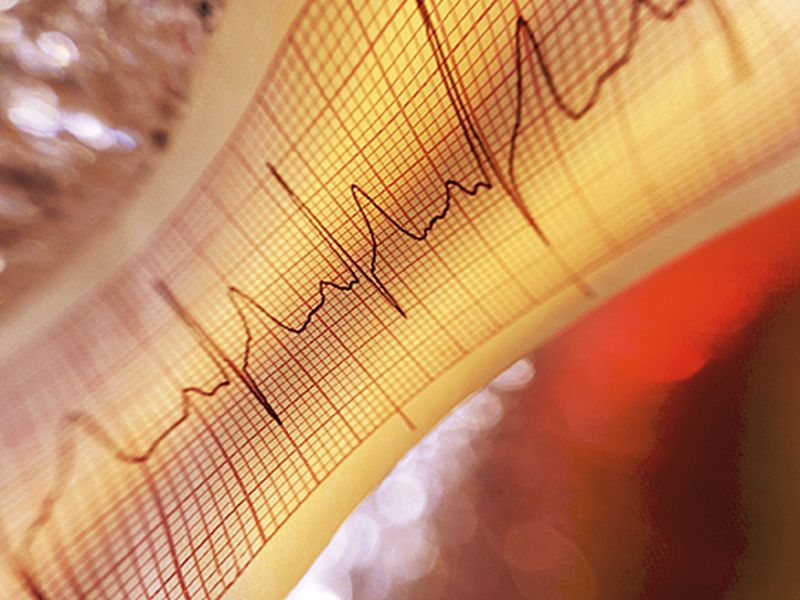Too Much Salt Might Help Spur A-Fib

FRIDAY, Dec. 7, 2018 (HealthDay News) -- A high-salt diet could raise your risk for a common heart rhythm disorder, new research suggests.
Atrial fibrillation (A-fib) is a quivering or irregular heartbeat that can lead to blood clots or other complications. It affects millions of people worldwide and puts them at higher risk for stroke and, in rare cases, can lead to heart failure.
This study included 716 middle-aged men and women in Finland who were followed for an average of 19 years. During that time, 74 of the participants were diagnosed with atrial fibrillation.
Those with the highest levels of salt in their diet had a higher rate of atrial fibrillation than those with the lowest salt intake. After accounting for several other risk factors -- including age, body fat, blood pressure and smoking -- the researchers found that salt consumption was independently associated with the risk of atrial fibrillation.
But the study only found an association -- it did not prove that a high-salt diet causes the heart rhythm disorder.
The study was published recently in the Annals of Medicine.
"This study provides the first evidence that dietary salt may increase the risk of new-onset atrial fibrillation, adding to a growing list of dangers from excessive salt consumption on our cardiovascular health," said study author Tero Paakko, from the University of Oulu in Finland.
"Although further confirmatory studies are needed, our results suggest that people who are at an increased risk of atrial fibrillation may benefit from restricting salt in their diet," Paakko said in a journal news release.
The chances of developing atrial fibrillation increase with age, and the condition affects about 7 in 100 people 65 and older.
"With estimates suggesting that over three-quarters of salt consumed is already added in processed foods, reducing salt intake at a population level could have a hugely beneficial impact on new-onset atrial fibrillation and overall cardiovascular disease," Paakko said.
More information
The U.S. National Heart, Lung, and Blood Institute has more on atrial fibrillation.

The news stories provided in Health News and our Health-E News Newsletter are a service of the nationally syndicated HealthDay® news and information company. Stories refer to national trends and breaking health news, and are not necessarily indicative of or always supported by our facility and providers. This information is provided for informational and educational purposes only, and is not intended to be a substitute for medical advice, diagnosis, or treatment.

